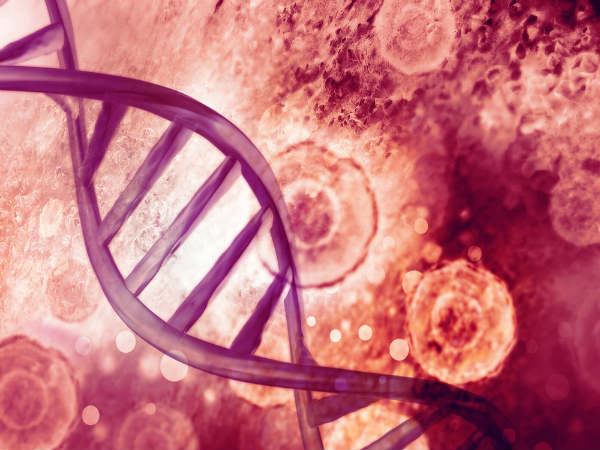Just In
- 1 hr ago

- 1 hr ago

- 3 hrs ago

- 4 hrs ago

Don't Miss
- News
 Massive Landslide Blocks Arunachal Pradesh's Dibang Valley Road Near Indo-China Border
Massive Landslide Blocks Arunachal Pradesh's Dibang Valley Road Near Indo-China Border - Automobiles
 2024 Jeep Wrangler Facelift Review - Off-Road Specialist Gets Easier To Live With
2024 Jeep Wrangler Facelift Review - Off-Road Specialist Gets Easier To Live With - Education
 CBSE Board Result 2024 expected to release soon: Know When and How to Check CBSE 10th & 12th Results
CBSE Board Result 2024 expected to release soon: Know When and How to Check CBSE 10th & 12th Results - Sports
 IPL 2024: Mitchell Starc or Andre Russell? Who is the Best Golfer in KKR?
IPL 2024: Mitchell Starc or Andre Russell? Who is the Best Golfer in KKR? - Finance
 Rs 44,000 Crore M-Cap Lost, Stock Falls 10%, No More 4th Largest Bank; How RBI's Ban Rocked Kotak
Rs 44,000 Crore M-Cap Lost, Stock Falls 10%, No More 4th Largest Bank; How RBI's Ban Rocked Kotak - Movies
 Idi Minnal Kadhal OTT Release Date And Platform: When And Where To Watch Ciby And Bhavya Trikha's Movie
Idi Minnal Kadhal OTT Release Date And Platform: When And Where To Watch Ciby And Bhavya Trikha's Movie - Technology
 Garena Free Fire Max Redeem Codes for April 25, 2024: Get Access to the Latest Freebies in the Game
Garena Free Fire Max Redeem Codes for April 25, 2024: Get Access to the Latest Freebies in the Game - Travel
 Escape to Kalimpong, Gangtok, and Darjeeling with IRCTC's Tour Package; Check Itinerary
Escape to Kalimpong, Gangtok, and Darjeeling with IRCTC's Tour Package; Check Itinerary
Scientists Discover New Mechanism To Slow Progress Of Neurodegenerative Diseases
Scientists in the UK have discovered a new mechanism for preventing neurodegenerative diseases like dementia. Check here for details
Scientists in the UK have discovered a new mechanism that could help slow down the progression of neurodegenerative diseases like dementia and neurological decline associated with ageing, according to a research published on Wednesday.
The research was conducted by UK's University of Sheffield scientists. The Scientists identified that tuning up the activity pathway of the DNA's natural repair toolkit that normally helps to restore breakages in genetic material could help to prevent the death of nerve cells which trigger neurological diseases.
The scientists examined the C9 or f72 gene, which contains six DNA nucleotides - the building blocks of DNA where all-important cellular information is stored.
When this series of nucleotides is expanded and repeated multiple times, neurodegenerative diseases can occur. The expansions of the gene forms genetic material called 'R-loops' which make the DNA vulnerable to breakages.

They found that accumulation of R-loops and increased DNA breakage in neurons lead to neurodegenerative diseases.
Human cells have their own repair toolkits specially designed to fix breaks in DNA, however, the products of the expansion over-activate a process called autophagy - a process that gets rid of misfolded or "unwanted" proteins.
The new study, jointly directed by Professor Sherif El- Khamisy and Professor Mimoun Azzouz, published in Nature Neuroscience, shows that the expansion driven over-activation of this process can degrade some of the very precious DNA toolkits, meaning the cells will eventually die.
"We were able to shut down the out-of-control degradation process, which runs down the cell's ability to fix genomic breaks, using genetic techniques. Even though the DNA was still damaged, the cells were able to cope and did not die" said El-Khamisy.
-
 disorders cureCongenital Insensitivity To Pain (CIP): Causes, Symptoms, Complications, Diagnosis And Treatment
disorders cureCongenital Insensitivity To Pain (CIP): Causes, Symptoms, Complications, Diagnosis And Treatment -
 wellness1 Year Old Diagnosed With Rare Neurological Disorder – ‘Dancing Eye Syndrome’
wellness1 Year Old Diagnosed With Rare Neurological Disorder – ‘Dancing Eye Syndrome’ -
 wellnessFoods That Calm Your Nervous System
wellnessFoods That Calm Your Nervous System -
 wellnessBeware Of Nervous Breakdown Signs! It Could Happen To Anyone Due To Stress!
wellnessBeware Of Nervous Breakdown Signs! It Could Happen To Anyone Due To Stress! -
 wellnessHealth Dangers Of Wearing Tight Jeans
wellnessHealth Dangers Of Wearing Tight Jeans -
 wellnessHow Can You Prevent Hearing Loss?
wellnessHow Can You Prevent Hearing Loss? -
 wellnessBeware! Here Are Some Unexpected Hereditary Health Conditions You Might Inherit
wellnessBeware! Here Are Some Unexpected Hereditary Health Conditions You Might Inherit -
 disorders cureWhat Are The Causes Of Nerve Damage?
disorders cureWhat Are The Causes Of Nerve Damage? -
 wellnessCauses Of Nerve Damage
wellnessCauses Of Nerve Damage -
 wellnessWhat Causes Itchy Sensation In Legs?
wellnessWhat Causes Itchy Sensation In Legs? -
 wellnessNerve Injuries & Neuropathies Of The Hand
wellnessNerve Injuries & Neuropathies Of The Hand -
 disorders cureOz Scientist Makes Cancer Breakthrough
disorders cureOz Scientist Makes Cancer Breakthrough


 Click it and Unblock the Notifications
Click it and Unblock the Notifications



